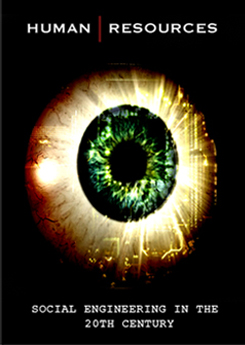 |
| Girolamo da Carpi - Chance and Penitence |
‘Opportunity, infrequent, and known to few.’‘Please tell me who you are.’
‘Why are you standing on a wheel?’
‘I can’t stand still.’
‘Why have you got winged sandals?’
‘I am very swift. Whenever I want, I hand over the good fortune which Mercury customarily creates.’
‘You cover your face with your hair.’
‘I don’t want to be recognised.’
‘But, good heavens, the back of your head is bald!’
‘So I can’t be caught as I make off.’
‘Who is the companion with you?’
‘Let her tell you.’
‘I am a goddess to whom even Cicero himself did not give a name. I am the goddess who exacts punishment for what has and has not been done, so that people regret it. Hence my name is Metanoea.’
‘Now you again please, tell me what she is doing with you.’
‘Whenever I’ve flown away, she stays behind me. Those whom I’ve passed by hold on to her. You too, while you’re asking all these questions procrastinating with your interrogation, will discover that I have slipped through your hands.’
Metanoia resides in the wake of opportunity, sowing regret and inspiring repentance in the missed moment. It is "a reflective act in which a person returns to a past event in order to see it anew"
Metanoia ‘is seldom a function of the intellect alone’.
Importantly, in the Liddell and Scott lexicon metanoia is described as a "change of mind and heart". Acknowledging the presence of the ‘heart’ in metanoia highlights the mind-body partnership at work in the concept. In metanoia, mind and body, feeling and intellect, collaborate in creating new knowledge and perspective.
Kelly A. Myers - Metanoia and the Transformation of Opportunity (full article in pdf here)
μετανο-έω ,
A.perceive afterwards or too late, opp. προνοέω, Epich. [280]; opp. προβουλεύομαι, Democr.66; concur subsequently, τισι BGU747 i 11 (ii A. D.).
2. change one's mind or purpose, Pl. Euthd.279c, Men.Epit.72; μ. μὴ οὔτε . . τῶν χαλεπῶν ἔργων ᾖ τὸ . . ἄρχειν change one's opinion and think that it is not . . , X.Cyr.1.1.3.
3. repent, Antipho 2.4.12; “ἐν τοῖς ἀνηκέστοις” Id.5.91: freq. in LXX and NT, Si.48.15, al.; “ἀπὸ τῆς κακίας” Act.Ap.8.22; “ἐκ τῶν ἔργων” Apoc.9.20; “ἐπὶ τῇ ἀκαθαρσίᾳ” 2 Ep.Cor.12.21, cf. OGI751.9 (Amblada, ii B. C.); “ἐπί τινι” Luc.Salt.84, etc.; “περί τινων” Plu.Galb.6; “τοῖς πεπραγμένοις” Id.Agis 19: c. part., “μ. γενόμενος Ἕλλην” Luc.Am. 36.
4. c. acc., repent of, “τὴν ἄφιξιν” J.BJ4.4.5.
spijt zn. ‘berouw; leedwezen’
Mnl. spijt ‘smaad, hoon, minachting’ in in sijn spijt ‘om hem te honen’ [begin 15e eeuw; MNW], grote spijt doen ‘met minachting bejegenen, schande aandoen’ [1481; MNW]; vnnl. ‘woede, wrok’ in seyde de Sarasijn in spite ‘zei de Saraceen vol woede’ [ca. 1540; MNW], ‘leedgevoel, spijt’ in mi selven die keele afsteken uut spijte [begin 16e eeuw; MNW]; nnl. spijt ‘teleurstelling’ in geen een (kind) ... tot mijn spijt [1840; WNT], ‘berouw’ in Ze had nu spijt van kleine kibbelarijtjes met mama [1901; Kuipers].
Verkorting van ouder despijt ‘smaad, minachting’ [ca. 1350; MNW], ‘spijt, wrok’ [ca. 1400; MNW], dat ontleend is aan Oudfrans despit ‘wrok’ [1160-74; TLF] en ‘minachting’ [1140; TLF] (Nieuwfrans dépit) < Latijn dēspectus ‘minachting’, afleiding van het ww. dēspicere ‘neerkijken op, minachten’; dat ww. is gevormd met het voorvoegsel dē- ‘vanaf, vanuit’, zie → de-, bij het ww. specere ‘zien, kijken’, verwant met → spieden.
spieden ww. ‘onderzoekend kijken’
Mnl. spien ‘onderzoekend kijken, opletten, in de gaten houden’ in wachten ende spin ‘wachten en in de gaten houden’, Hi wachte hi spiede. hi quam hi ginc Al stille swigende alse en dief [beide 1265-70; VMNW]; vnnl. spieden, spien [1573; Thes.].
Ontstaan uit mnl. spien, waarbij de d uit de verleden tijd spiede(n) door analogie is overgenomen in de tegenwoordige tijd en de infinitief, of uit hypercorrectie, omdat men dacht dat er sprake was van d-syncope. Zie ook → bespieden.
Mnd. spe(g)en, spēn; ohd. spehōn (nhd. spähen); alle ‘spieden, onderzoeken e.d.’, < pgm. *spehōn-. Dit West-Germaanse werkwoord is ontleend als Oudfrans espier ‘beloeren, bespieden’, zie → spion. Daarnaast staat ablautend pgm. *spahōn-, waaruit on. spá ‘voorspellen’ (nzw. spå).
Verwant met: Latijn specere ‘zien, kijken’ (zie ook o.a. → perspectief, → specerij, → spectrum, → spektakel, → spiegel); Grieks skopeĩn ‘kijken’ (met metathese *sp...k > *sk...p, zie → -scoop), sképtesthai ‘rondkijken, beproeven’ (zie → sceptisch); Sanskrit páśyati ‘ziet, bekijkt’; Avestisch spaciiā ‘id.’; < pie. *speḱ-, *spoḱ- ‘bekijken’ (LIV 575).
spijt zn. ‘berouw; leedwezen’
Mnl. spijt ‘smaad, hoon, minachting’ in in sijn spijt ‘om hem te honen’ [begin 15e eeuw; MNW], grote spijt doen ‘met minachting bejegenen, schande aandoen’ [1481; MNW]; vnnl. ‘woede, wrok’ in seyde de Sarasijn in spite ‘zei de Saraceen vol woede’ [ca. 1540; MNW], ‘leedgevoel, spijt’ in mi selven die keele afsteken uut spijte [begin 16e eeuw; MNW]; nnl. spijt ‘teleurstelling’ in geen een (kind) ... tot mijn spijt [1840; WNT], ‘berouw’ in Ze had nu spijt van kleine kibbelarijtjes met mama [1901; Kuipers].
Verkorting van ouder despijt ‘smaad, minachting’ [ca. 1350; MNW], ‘spijt, wrok’ [ca. 1400; MNW], dat ontleend is aan Oudfrans despit ‘wrok’ [1160-74; TLF] en ‘minachting’ [1140; TLF] (Nieuwfrans dépit) < Latijn dēspectus ‘minachting’, afleiding van het ww. dēspicere ‘neerkijken op, minachten’; dat ww. is gevormd met het voorvoegsel dē- ‘vanaf, vanuit’, zie → de-, bij het ww. specere ‘zien, kijken’, verwant met → spieden.
spieden ww. ‘onderzoekend kijken’
Mnl. spien ‘onderzoekend kijken, opletten, in de gaten houden’ in wachten ende spin ‘wachten en in de gaten houden’, Hi wachte hi spiede. hi quam hi ginc Al stille swigende alse en dief [beide 1265-70; VMNW]; vnnl. spieden, spien [1573; Thes.].
Ontstaan uit mnl. spien, waarbij de d uit de verleden tijd spiede(n) door analogie is overgenomen in de tegenwoordige tijd en de infinitief, of uit hypercorrectie, omdat men dacht dat er sprake was van d-syncope. Zie ook → bespieden.
Mnd. spe(g)en, spēn; ohd. spehōn (nhd. spähen); alle ‘spieden, onderzoeken e.d.’, < pgm. *spehōn-. Dit West-Germaanse werkwoord is ontleend als Oudfrans espier ‘beloeren, bespieden’, zie → spion. Daarnaast staat ablautend pgm. *spahōn-, waaruit on. spá ‘voorspellen’ (nzw. spå).
Verwant met: Latijn specere ‘zien, kijken’ (zie ook o.a. → perspectief, → specerij, → spectrum, → spektakel, → spiegel); Grieks skopeĩn ‘kijken’ (met metathese *sp...k > *sk...p, zie → -scoop), sképtesthai ‘rondkijken, beproeven’ (zie → sceptisch); Sanskrit páśyati ‘ziet, bekijkt’; Avestisch spaciiā ‘id.’; < pie. *speḱ-, *spoḱ- ‘bekijken’ (LIV 575).
Metanoia Films
Zie ook Over Kronos en Kairos en Concerning Inspiration


Geen opmerkingen:
Een reactie posten